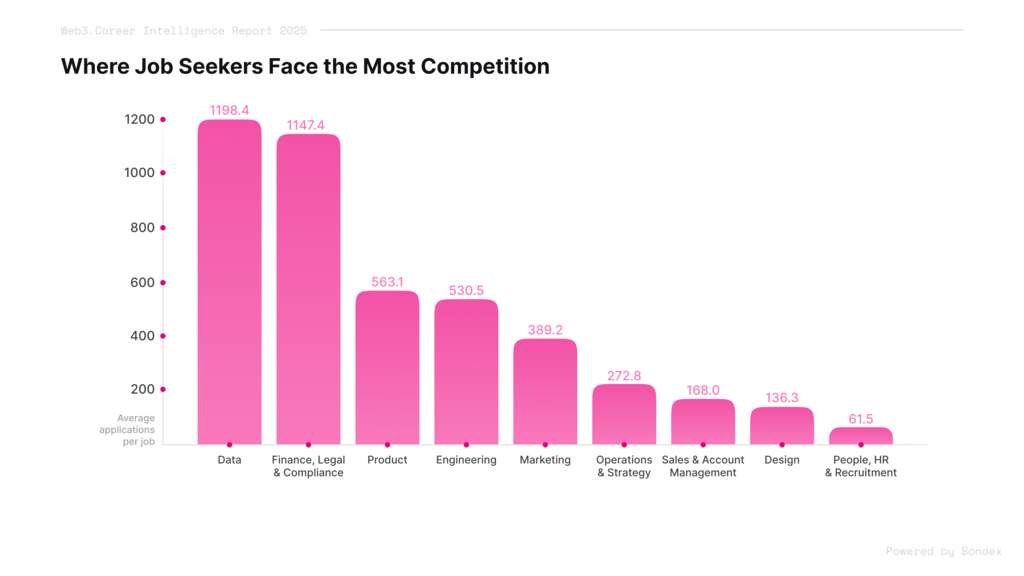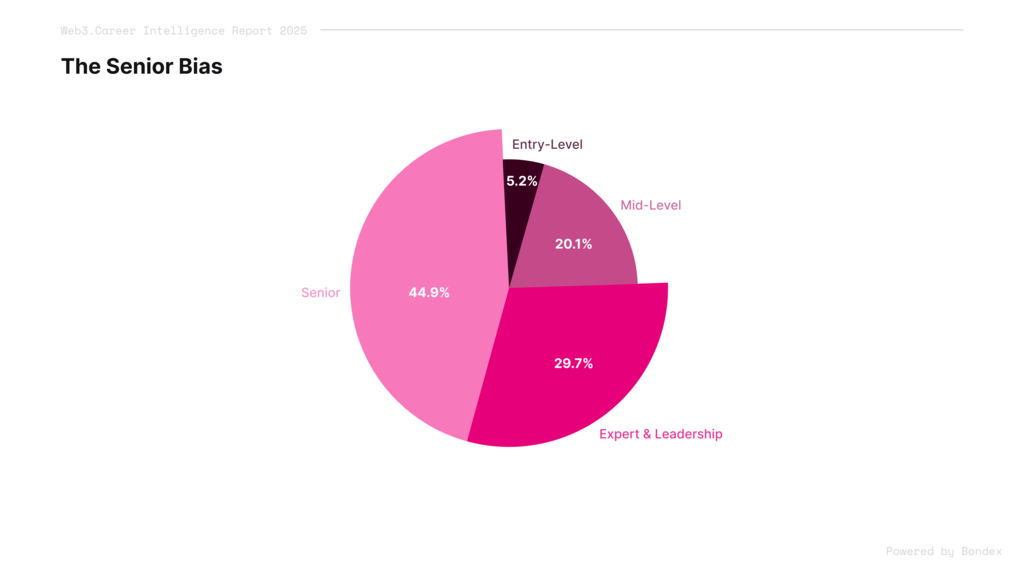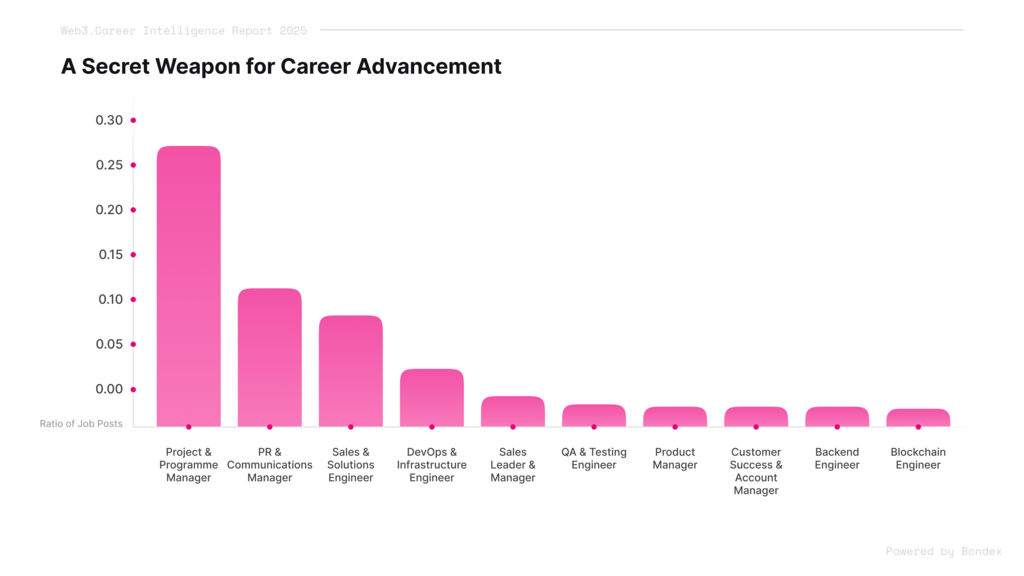Web3.Career Intelligence Report (2025)
We've just released our Web3 Career Intelligence Report. It shares insights on key trends, like geographic salary arbitrage, project management as a secret weapon, and AI's evolution from optional to mandatory, plus, the end of remote work as the default, new data on competition by department, and much more.
The Web3 career landscape has fundamentally shifted. The 2025 Web3.Career Intelligence Report reveals all-time highs in job postings activity. And it analyzes how the Web3 hiring ecosystem has matured, especially after companies moved beyond experimentation toward execution, drastically changing what skills matter most alongside the rise of hybrid work models and geographic arbitrage opportunities.
This year, we're also introducing new analysis based on our unique view of the Web3 career landscape, including where the "career energy" is. The report incorporates data from over 80,000 job postings across 15,900+ companies, aggregated and analyzed, that are drawn from Web3.Career's job board data, Bondex's talent network, and other industry-wide tracking. Through this analysis, anyone can explore what Web3 companies are looking for in talent, everything from which roles they're hiring for most, to what salary premiums exist by geography, as well as which skills are becoming mandatory versus nice-to-have.
Geographic arbitrage is an underutilized career lever
One of the most significant findings in our report is the dramatic geographic salary differences that create unprecedented career opportunities for strategic professionals.
Web3 professionals in emerging markets are earning 3-10x local market rates. But this arbitrage opportunity is time-sensitive.
In newer crypto/blockchain markets, people get paid more than the local average. But as these markets grow and become more normal, the extra pay disappears. The early adopters stand to make the most of these salary opportunities.
Take Portugal, which has emerged as Europe's Web3 hub. Portugal's crypto-friendly regulatory environment has created a unique ecosystem where Web3 professionals earn massive premiums while enjoying lower cost of living than traditional European tech hubs.
The remote first work era is over
2025 has seen a 50% reduction in remote jobs year-over-year. This isn't a temporary correction, it's a structural shift that makes location strategy critical for career advancement.
Most companies have settled on hybrid models that balance flexibility with collaboration needs. The sweet spot appears to be 3-4 days in office, providing flexibility while maintaining the benefits of in-person collaboration.
Why did this happen? Three factors converged:
- Company Maturity: 5-8 year old companies are moving beyond startup phase and need structured knowledge transfer and team coordination.
- Trust & Quality Issues: Anonymous developer problems created the need for verifiable professional identity and quality assurance requirements.
- Knowledge Transfer Needs: Complex blockchain technology requires senior-to-junior mentoring and cross-functional collaboration demands.
As transaction costs came down for blockchain networks, companies realized collaboration costs had gone up for remote teams.
AI skills have moved from optional to mandatory
The percentage of job descriptions requiring AI workflows has grown from 2% in 2021 to 14% in 2025. But this understates the real shift.
AI integration is now baseline, not differentiating. Professionals report 30%+ productivity gains with proper AI integration. Companies increasingly expect this as baseline competency rather than a differentiating factor.
Baseline Requirements:
- Prompt engineering competency
- Tool familiarity (ChatGPT, Claude, etc.)
- Workflow integration
Advanced Requirements:
- Custom AI application development
- AI strategy development
- Process optimization with AI
The Web3 career landscape is evolving rapidly. Company priorities have shifted toward execution, and the talent war increasingly rewards professionals who combine technical knowledge with AI fluency.
Some roles have fierce competition
Some departments attract 10-20x more applications than others. The competition is not evenly distributed across Web3 careers.
In high-competition departments, talent doesn't just need to be good, it needs to be visible and trusted. Candidates can stand out with verifiable credentials and endorsements, public proof of work (GitHub, dashboards, case studies), and a clear Web3-native profile.
Meanwhile, Operations & Strategy roles, which offer similar compensation to more competitive departments, receive 4x fewer applications. This represents a significant hidden opportunity for strategic career positioning.
Web3 has a seniority bias
The Web3 job market has a pronounced experience bias that creates unique advancement opportunities for mid-level professionals ready to position themselves strategically.
Companies overwhelmingly hire for senior roles, creating a gap that prepared professionals can exploit.
Mid-level professionals who can demonstrate senior capabilities can command senior-level positions and compensation.
Coordination > creation
The most counterintuitive finding in our report is that Project & Programme Management has become the highest-demand role category — representing over 27% of all postings. For an industry built on revolutionary technology, why are companies hiring more coordinators than creators?
The answer reveals a fundamental shift in how Web3 companies create value. During the building phase (2020-2022), value creation was about technical breakthroughs. Companies needed brilliant individuals to solve novel problems. Technical expertise was scarce and commanded premiums.
In the execution phase (2023-2025), value creation is about orchestrating complexity. Companies need to integrate multiple blockchains, navigate regulatory frameworks, serve enterprise clients, and coordinate global teams. The scarce resource isn't technical knowledge — it's the ability to synthesize technical possibilities into business outcomes.
We're witnessing the emergence of a new professional archetype: the Web3 Systems Thinker — someone who understands both the technical substrate and the coordination layer built on top of it.
Looking ahead: What's next for Web3 careers
Where does that leave us? The state of Web3 careers has made significant strides across hiring maturity, geographic opportunities, work structure evolution, and skill requirements over the past year. There were major shifts in remote work policies, the rise of geographic arbitrage strategies, and the evolution of AI from optional to mandatory skills.
Whether we've entered a new phase of the Web3 career cycle remains to be seen. Either way, Web3 careers, as an industry, have made inarguable progress over the past year. And as recent market data has proven, it can take just one strategic career move to shift an entire professional trajectory.
The Web3 career market rewards professionals who recognize trends early and position themselves ahead of shifts rather than reacting to them. The opportunities revealed in this analysis represent the current market reality, but markets evolve rapidly.
Find Jobs | Web3.Career
Get Discovered | Bondex Profile
Special thanks to our partners
BitGet | Myosin | Hype Talent | Blockchain 4 Youth | Flight3 | Nozomi | Cookie3 | Transcend | Myosin | Human.Tech
Report Authors: Paul Martin | Kyle Burke | Joseph Mattouk
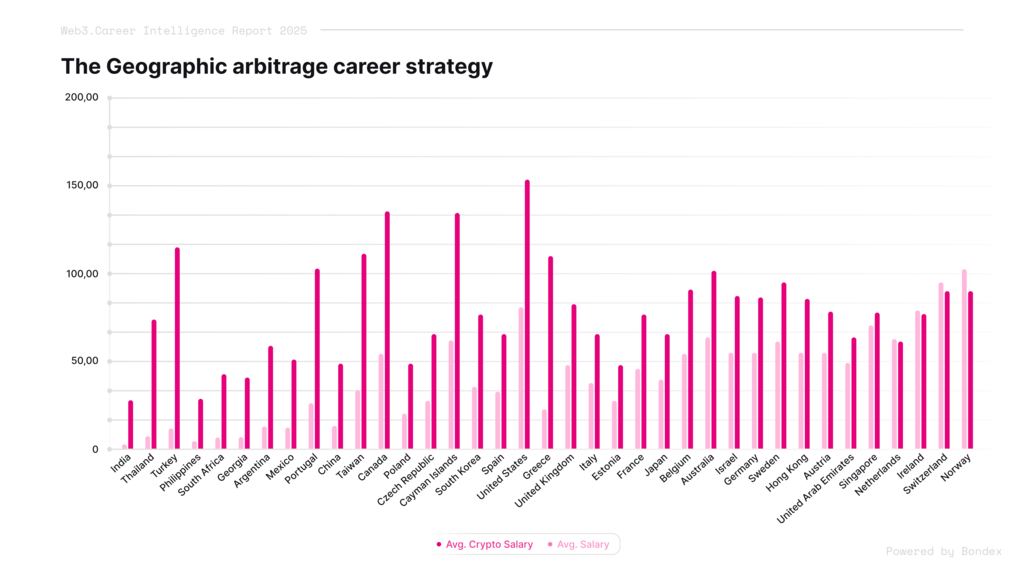
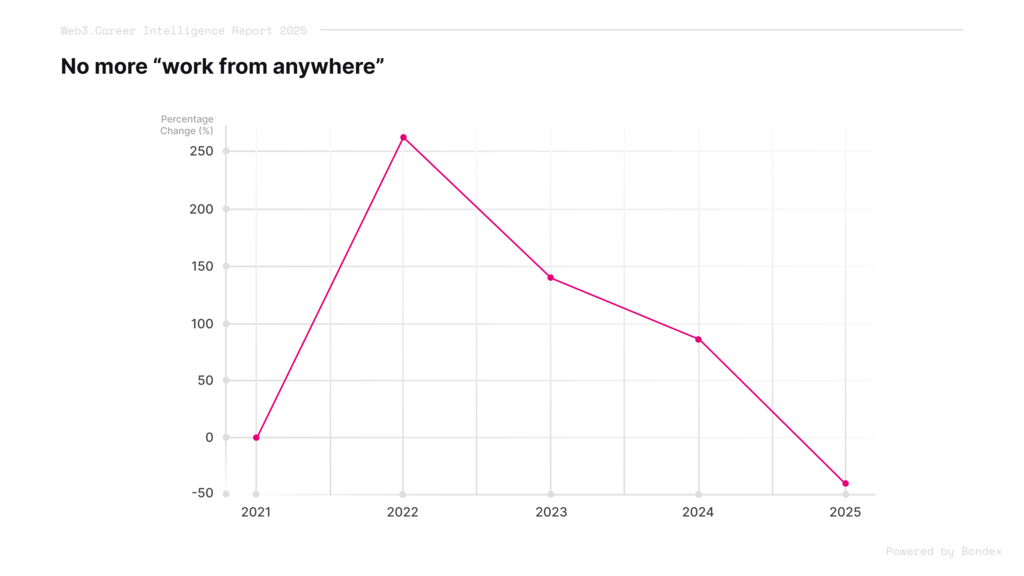
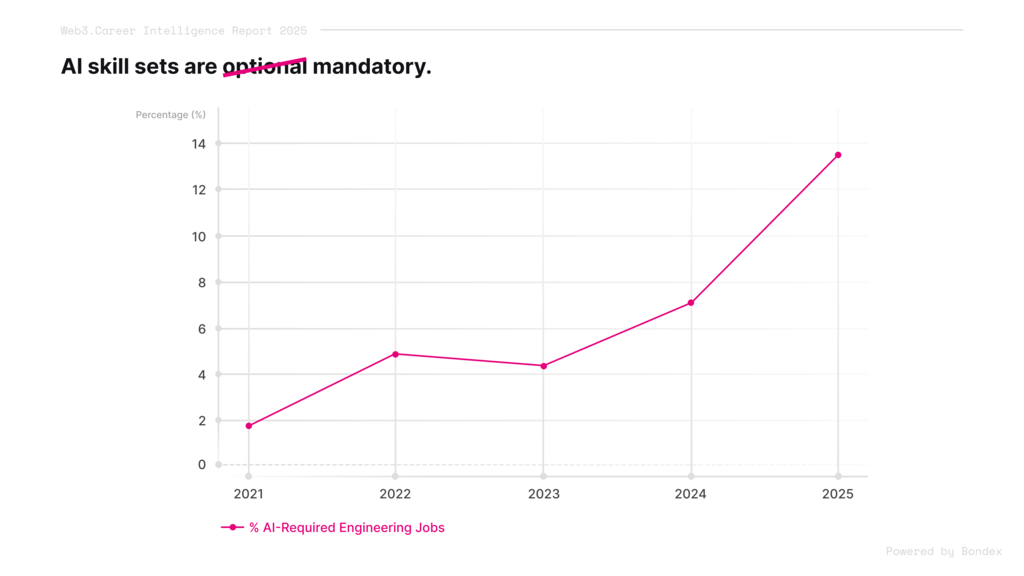.png)
